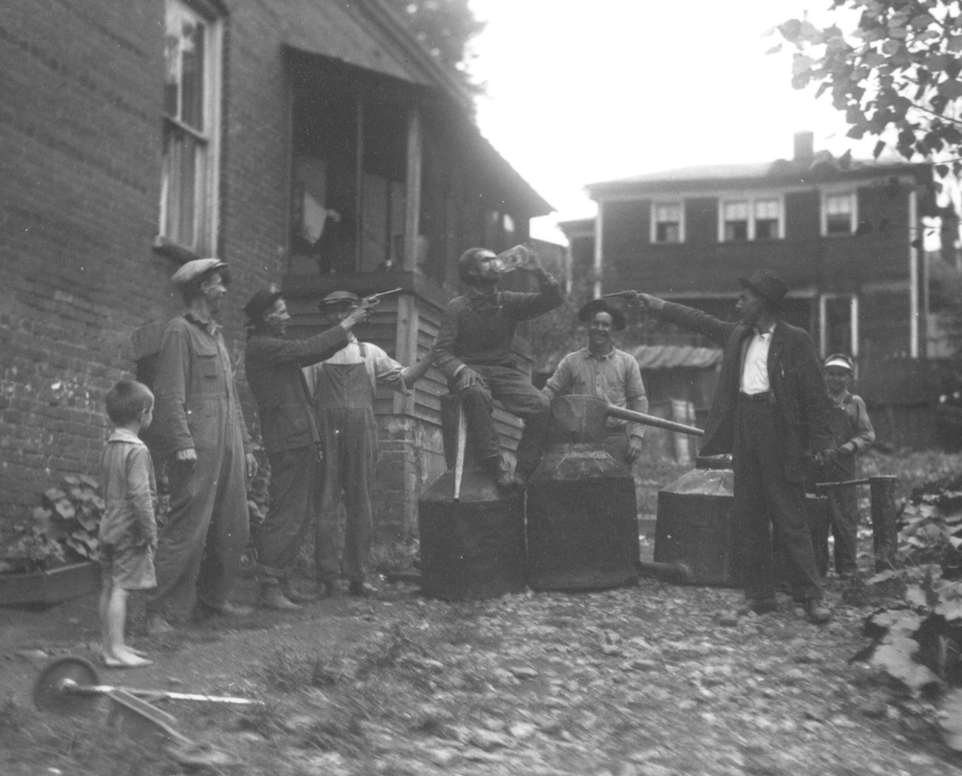On Oct. 5, 1918, The Asheville Citizen reported “approximately 8,000 cases of Spanish influenza” across the state, with the majority (6,000) in Wilmington. According to the paper, Asheville city commissioners responded to the crisis by ordering the closure of all theaters and schools; churches were also required to postpone services. Meanwhile, the commissioners mandated the city’s cafés and restaurants “to serve cold drinks and ice cream in individual containers.” (For more, see “Asheville Archives: The 1918 influenza changes social norms,” Oct. 31, 2018, Xpress)
In the midst of the growing pandemic, one local resident attempted to use the health crisis to aid his legal defense. Thomas Thompson, described as an “unusual sort” by The Asheville Citizen, was in court on Oct. 8, 1918, for the possession of 2 gallons of whiskey, an illegal substance in Asheville since 1907. (For more, see “Asheville Archives: Prohibitionists seek to reform Asheville, 1907,” May 29, 2018, Xpress)
“Applying the maxim dealing with the necessity of making preparations for war in time of peace, Thomas Thompson believes that illness should be anticipated during the enjoyment of good health,” The Asheville Citizen reported in the following day’s paper. Though Thompson told Judge Robert M. Wells that he had not suffered any malady since childhood, he claimed to have purchased the 2 gallons of whiskey as a preventive measure. “He was especially afraid of influenza,” the article stated.
Hoping to bolster his defense, the paper wrote that Thompson “exhibited a quantity of herbs brought from Virginia as proof of the fact that the whiskey was intended wholly for medicinal purposes.”
But according to the article, Judge Wells “felt that the herbs were valued chiefly because of the fact that mastication of them destroys all traces of whiskey on the breath.” Based on Thompson’s testimony, the judge also expressed “that officers might do well to seek a spring on the Weaverville road which spouts whiskey instead of water.”
As punishment, Thompson’s 2 gallons were destroyed. In addition, he was fined $150 (roughly $2,566 in today’s dollar) and ordered to leave the state by 10 a.m. the following morning. To the paper’s surprise, the guilty party accepted the ruling “with a smile” and was reported to have thanked the judge, “stating that he hopes he never sees any more whiskey.”






